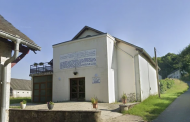Shaimaa Yahya
During recent years, Turkey’s policy towards the Balkan countries has been characterized by soft power of a colonial nature and an expansionist desire that expands and appears under several forms, in contrast to what it shows, through the economic and cultural policy that allows it to penetrate into the internal affairs of those countries, especially Bosnia and Kosovo. The cumulative economic crises left by the neglect of European countries allowed an opportunity for the Turkish colonizer to infiltrate.
Erdogan’s influence
History was an important factor, as the Balkans occupy a special importance to the Turks. In the past, the region was a large part of the Ottoman Empire, not only in terms of geographical area, but in terms of its cadres with Balkan origins, as well as the waves of Muslim immigration to Anatolia in the late 19th century, which continued until the early decades of the Turkish Republic.
Turkish policies have exploited the history factor between them and the Balkans and have led to irreversible entanglements, which were evident in Turkey’s desire to return the Ottoman legacy in the region, with Turkish social institutions and economic benefits, and to make it a political card in Eastern Europe, which gives Erdogan the opportunity to use all this to put pressure on European countries under a religious slogan or what is described as “neo-Ottomanism”.
These policies towards the Balkan countries resulted in a favorable climate for friendly countries to play a similar role within the framework of the international agenda in support of political Islamist currents. The most prominent of these countries was Qatar, which exploits its charitable and economic programs to exist in the region.
Exploiting religion
Turkey has sought for a long period of time to restore what it calls “Ottoman ties between Muslims” in the Balkans. The ruling Justice and Development Party (AKP), since 2002, has adopted major policies in dealing with Islamic countries, in pursuit of the religious tendency of Muslim peoples in the service of its expansionist colonial goals, which prompted various leaders to issue warnings of the expansion of Turkish influence.
Ankara has played on the exploitation of the social, educational and cultural aspects, and it has been interested in building many mosques and restoring what is considered their heritage. In May 2019, Bosnia reopened the Aladza Mosque with a huge Turkish financial contribution, after 30 years following its destruction during the war of secession from Yugoslavia. In 2015, the Turkish president opened a huge mosque in Tirana, Albania, which cost nearly $30 million to construct.
A great controversy arose in Kosovo among the citizens caused by the huge Turkish funding for mosques, which prompted them to threaten to kill the country’s mufti if the government continued to build mosques in the Ottoman style with Turkish help, considering it a new invasion, but the government turned away from that anger and continued to bring in Turkish money to religious institutions as a state that supports political Islamism.
Imposing influence on education and health
The Turkish president did not lose sight of imposing his control over the educational sector in the Balkans, especially in Bosnia and Herzegovina, by expanding the teaching of the Turkish language in schools and institutes, where the language penetrated the country to be the first among the foreign languages that students learn.
On the health sector side, Turkey has invested in the Covid-19 crisis to seek more rapprochement and penetration by using the Turkish Cooperation and Coordination Agency (TIKA) to provide health benefits in the form of urgent medical supplies in several countries such as Bosnia and Herzegovina, Kosovo and Macedonia, as well as receiving patients from the Balkans for treatment in Ankara.
According to the official Anadolu Agency, TIKA announced on January 9, 2020, that it had implemented 900 projects in Bosnia since the end of the war.
Joint political relations
The political relations between Turkey and the Balkans became clearer with the establishment of the South-East European Cooperation Process (SEECP) in 1996, which included cooperation relations between Turkey, Albania, Kosovo, Bosnia, Macedonia, Montenegro, Bulgaria, Serbia and other countries in the region.
In 2008, SEECP was able to develop a regional cooperation council partially funded by the European Union to support these countries and improve their economies, and it aspired to improve the neighborhood between Turkey and the Balkans, as well as the European Union.







































admin in: How the Muslim Brotherhood betrayed Saudi Arabia?
Great article with insight ...
https://www.viagrapascherfr.com/achat-sildenafil-pfizer-tarif/ in: Cross-region cooperation between anti-terrorism agencies needed
Hello there, just became aware of your blog through Google, and found ...